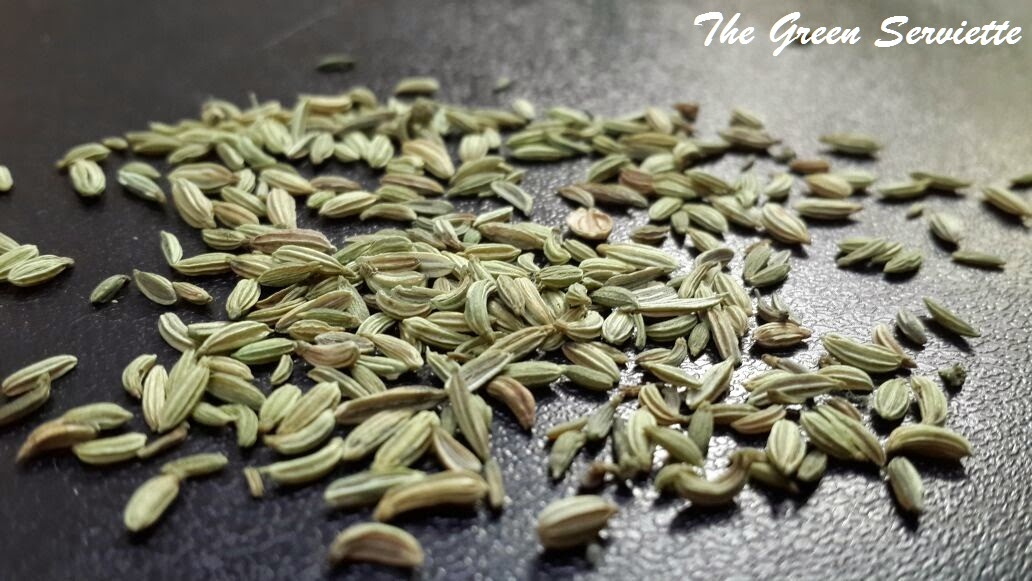Fennel is an aromatic herb belonging to the parsley family.
It is used as a spice and possesses a sweet taste that is similar to anise. It
is an essential ingredient in the Mediterranean cuisine. Fennel seeds ("Saunf" in Hindi) come from
both the fennel herb and the fennel vegetable bulb.
They have long been regarded as
an aid to weight loss because they are said to reduce appetite when consumed as
fennel tea. Chewing them is a remedy for bad breath. For women, fennel seeds
are helpful when breastfeeding, as they contain compounds that mimic estrogen
and therefore stimulate milk production. As an infusion, it can treat
flatulence, colic in babies and stomach cramps. However, the seeds should be
avoided in pregnancy as they may over-stimulate the uterus. Fennel seeds may
also be good for relieving menopausal symptoms.
Fennel seeds can be beneficial for your skin and hair. They
are inexpensive and readily available and loaded with minerals like iron,
copper, selenium, potassium, magnesium, zinc and even vitamins like Vitamin C,
Vitamin A and Vitamin E, fennel seeds are also known to be a rich store house
of dietary fibres, active compounds and antioxidants.
Tips to include this
in your diet:
- Have as an appetizer after food.
- Make a fennel tea by steeping a spoonful of seeds in boiling water for 5 minutes.
- Fennel flavours goes well with fish.
- Add crushed fennel seeds for that extra flavor in salads.
Major Nutrients per 100g Fennel Seeds
|
|
Energy
|
345 Kcal
|
Carbohydrates
|
52.29 g
|
Protein
|
15.80 g
|
Total Fat
|
14.87 g
|
Cholesterol
|
0 mg
|
Dietary Fiber
|
39.8 g
|
Vitamins
|
|
Niacin
|
6.050 mg
|
Pyridoxine
|
0.470 mg
|
Riboflavin
|
0.353 mg
|
Thiamin
|
0.408 mg
|
Vitamin A
|
135 IU
|
Vitamin C
|
21 mg
|
Electrolytes
|
|
Sodium
|
88 mg
|
Potassium
|
1.7 g
|
Minerals
|
|
Calcium
|
1.2 g
|
Copper
|
1.067 mg
|
Iron
|
18.54 mg
|
Magnesium
|
385 mg
|
Manganese
|
6.533 mg
|
Phosphorus
|
487 mg
|
Zinc
|
3.70 mg
|
Post by Faiz Lahori



Cholesterol absorption in the arteries can be prevented by the fennel seeds. These seeds are associated with a fiber that helps to decrease the reabsorption of the cholesterol and helps to prevent the heart-related diseases.
ReplyDelete